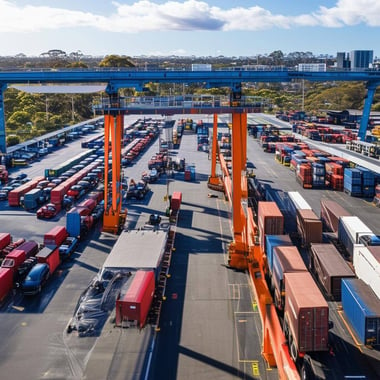
Up-skilling in the manufacturing industry

It's no secret that Australian manufacturing has been doing it tough. Businesses have been cost-cutting, downsizing, closing down manufacturing completely and importing from overseas as a means to stay afloat. The automotive industry has been in a steady decline since the 1980's. Australia is one of a few countries with the capability to design cars from scratch and manufacture them in significant volumes. However, we are now only producing approximately 200,000 cars per annum as opposed to approximately 500,000 cars per annum in the 1970's. Australia's car market is now primarily composed of imports from Asia and Europe.
There has been significant debate around what to do about manufacturing in Australia. With the automotive sector receiving substantial investment from the government, many senior executives from other industry sectors have commented on the importance of maintaining a footprint in car manufacturing; Terry Davis, Chief Executive of Coca-Cola Amatil, "The downstream, flow-on benefits that are derived from the Australian car industry are significant". Australia's population is tipped to reach approximately 26 million people by 2020 and although this would logically spell good news for local manufacturers, the reality is the big winners are going to be the overseas importers.
Who are the Australian based winners in all of this? Certainly as consumers we have our choice of global brands to choose from and thanks to the rise in imports, cars are more affordable now than they ever were. These commercial gains for consumers cause ramifications for employment levels in manufacturing. The current unemployment rate is presently hovering at around 5.5% and the vast majority of this can be attributed to the decline in manufacturing. Imports are going to rise, that is a given and I don't think any amount of investment in local manufacturing is going to delay the inevitable.
So where does that leave us moving forward? In 2012 the Victorian Government announced a $1.6 billion redevelopment of The Port of Melbourne, Webb Dock East terminal, including a new world class automotive terminal. In itself this should be enough to suggest that the people have spoken as far as the automotive sector is concerned. The Port of Melbourne is Australia's largest port operation and handles around 36% of the nation's container traffic and more auto trade than any other Australian Port. Container trade and automotive units are expected to double within the next decade. In the financial year 2011/2012 more than 250,000 imported vehicles were handled at The Port of Melbourne as opposed to 100,000 exported vehicles.
Moving forward the port is a critical asset for Victoria, supporting in excess of 15,900 jobs and underpinning the local economies across the state. Once complete, the port will continue as the nation's largest importer and exporter of containers servicing all industry sectors. Most of the associated logistics businesses are projected to grow. While manufacturing continues to face challenges and the debate rages as to its validity in the long term, it's important to note that it's not all bad news. People, (especially those within manufacturing) must be flexible and 'change with the times' and look at ways of broadening their skills sets and experience so that they can best position themselves to take on roles in such areas as port operations and logistics. There is no doubt that moving forward opportunities will present themselves within the import / logistics environments. Companies will look to capitalise on the increasing volumes and will most certainly need to increase headcount to cope with the ever rising demand of imports that looks set to be the future of this country.
What can the industry do to support manufacturing personnel and better prepare them for future roles in areas such as port operations and logistics?
Related


Meet the Experts: Nicole’s insights on the evolution of digital marketing
Welcome to our Meet the Experts series, where we spotlight the industry specialists at Six Degrees...

7 ways to revamp your EVP in 2025 to attract and retain talent
Gone are the days when office perks like foosball tables and free lunches were enough to attract...


 Accessibility
Accessibility